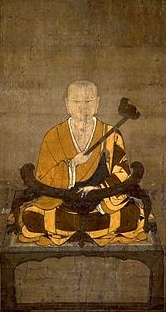Hibiki and the Spiritual System of Reiki
 What we feel during a hands on healing session or a meditation is called hibiki in Japanese. Literally, hibiki means an echo. The reason why these sensations are called hibiki/echo is because they are not real–an echo is empty, like a reflection or an illusion.
What we feel during a hands on healing session or a meditation is called hibiki in Japanese. Literally, hibiki means an echo. The reason why these sensations are called hibiki/echo is because they are not real–an echo is empty, like a reflection or an illusion.
We need to experience the hibiki without labeling it. When we label hibiki we see it as real and we start to make distinctions between a good or bad hibiki, which in itself creates a dualist state of mind.
Here’s something to ponder for those inetrested in hibiki and Usui’s spititual practice of the system of Reiki.
No matter which tactile sensations become objects of awareness, one immediately realizes that they are like reflections, like an illusion, or like a conjuration, and thus unreal.
If one experiences a pleasurable tactile sensation to which one is temporararily agreeable, one does not give rise to desirous attachment. If one experiences painful tactile sensations to which one is temporarily opposed, one does not give rise to hateful affliction. If one experiences tactile sensations to which one is neither opposed nor agreeable, one does not give rise to thoughts which retain them in mind nor does one engage in making distinctions among them. This constitutes the cultivation of calming.
What is meant by the cultivation of [insight] contemplation when the body engages tangibles? One should bring forth this thought: “Lightness and heaviness, coolness and heat, roughness and slickness and other such dharmas are all tactile sensations….. The nature of tactile sensations is that they are all empty and false.” — Chih-i, Founder of Tiantai
©2017 International House of Reiki – reprinted by permission
